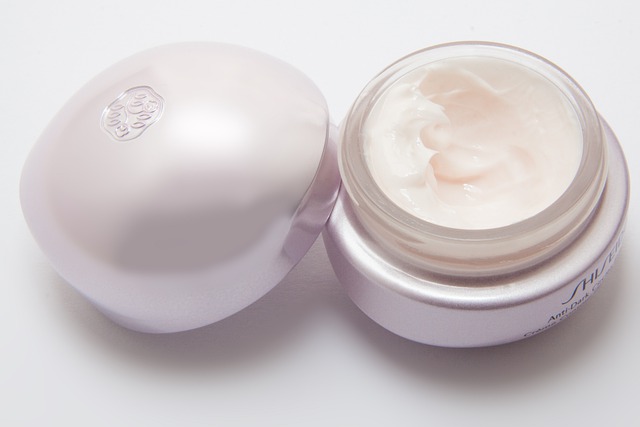Night Creams [Here’s What You Need to Know]

Night creams are often thought to boost skin health better than day creams. People with fine lines, wrinkles, acne, and other skin issues tend to opt for night creams over day creams. In this post, we’re going to be looking at night creams; how they should be applied, how they’re different, and how they help people with skin issues. Let’s dive in:
What Makes Night Creams So Special?
When compared to their daytime counterparts, night creams often have a thicker viscosity and a higher concentration of chemicals. They are often thought to be richer, having active ingredients like glycolic acid and retinol. As such, they promote circulation, hydration, and cell turnover.
Having said that, after a long day, a night cream will not only hydrate and calm your skin but will also speed up cell renewal, which encourages repair. On the other hand, day creams are typically thought to focus on vibrant skin and therefore have skin-lightening agents like vitamin C. They also focus on shielding the skin from the elements—U rays, heat, cold, dryness, and pollution.
All things considered, nighttime moisturizers are better geared toward the skin’s repair process. How so? Consider this: both collagen synthesis and the defence against free radicals happen when you’re sleeping. Moreover, night creams contain nutrients that can help support these processes. Most effective night creams contain retinol or a similar ingredient. Additionally, they might have components like hyaluronic acid and coenzyme Q10, components that aid in skin revitalization.
How Do Night Creams Work?
The primary mode of action is to enhance the renewal of epidermal cells with the aforementioned chemicals. Besides that, a good night cream will also promote hydration and contain humectant properties to re-stabilize the skin’s epidermal barrier. Naturally, these lead to supple, moisturized, and healthy skin.
If you’re used to exfoliating products like retinol or acids, though, it is advisable to use good sunscreen in the mornings following the use of night creams as advised by dermatologist Dr Abhijit Desai. In any case, it is standard good practice for your skin, whether or not you use exfoliants.
How Should Night Creams Be Applied?
Dermatologists advise applying night creams after cleaning your skin (rather than right before bed) to ensure that the skincare elements are well absorbed. Considering that cell regeneration is at its peak between 10 p.m. and 2 a.m., applying early enough allows the ingredients of your night cream to sink down on time. decollete firming treatment
Before using the cream, start by cleansing, toning, and using essence or serum on your skin. Afterwards, warm a dime-sized dollop of the cream in your palms before massaging it in upward, circular movements over the face. As a side point, you might want to see decollette firming treatment.
What Is the Best Night Cream for Your Skin Type?
Even though identifying your skin type might be challenging because it occasionally goes through a series of phases, you must do so when choosing a night cream because they are not a one-size-fits-all product. Here’s what you should know for different skin types:
Dry Skin
This type of skin tends to be flaky, tight, and occasionally dull-looking. Use moderate, non-abrasive substances to encourage cell turnover although this may seem paradoxical. How does it help? It eliminates the extra layer of dry skin to improve the absorption of moisturizing serums and treatments.
When it comes to dry skin, look for night creams with emollients like squalene or oils as well as hyaluronic acid and other humectants. These help smooth, hydrate, and even out skin texture. In turn, it keeps your complexion flexible and supple. Emollients and humectants in the Cetaphil Rich Hydrating Night Cream bind water to the skin and stop moisture loss.
After using such cream at night, it’s advisable to use a cream like the Glamglow Good In Bed Passionfruit Softening Night Cream. Such a cream includes moisturising hyaluronic acid and a blend of AHA, BHA, and PHA acids that gently exfoliate dead skin at the surface, preventing tightness in the morning.
Acne-prone, Oily Skin
Skin that is oily and prone to acne is more likely to have clogged pores, which can make one feel greasy in the morning. Select a light product with a gel-cream texture to help the skin retain moisture to avoid further blocking pores.
Too much oil removal can lead to overcompensation and the production of additional oil, especially if your skincare regimen includes mattifying or anti-acne treatments. As such, we advise a night cream containing lactic acid or glycolic, which can gently exfoliate and unclog pores.
For this, we recommend the Laneige Water Sleeping Mask which is incredibly light and sinks easily without leaving greasy imprints on sheets or your face. The Caudalie Vinoperfect Brightening Cream also lightens hyperpigmentation, acne spots, and dark spots all night long.
Wind Up
Night creams can give you the event complexion, soothing, moisturized skin that you desire. Simply choose one that suits your skin type, and compliment it with additional sunscreen and creams during the day and you’ll be good to go!

